When late-night cravings hit, you’ve probably found yourself wandering to the fridge or pantry for a bedtime snack. You may even opt for a nightcap to help you wind down and sleep. But, can drinking and eating before bed interfere with your sleep? The answer might surprise you.
Healthy Sleep
Adults ages 18-64 need at least 7 hours of sleep per night. During a night’s sleep, your body cycles through sleep stages, which have unique functions that help with cognitive performance and physical repairs.
- Stage 1 (NREM 1) lasts 5-10 minutes. You remain relatively alert but your brain activity begins to slow down.
- Stage 2 (NREM 2) takes up about 50% of your total sleep time. During this phase, eye movements stop and your breathing and heart rate regulate.
- Stage 3 (NREM 3) is your deepest sleep. During this phase, you are completely relaxed and your body begins to make physical repairs.
- Stage 4 (REM) is where dreaming happens and your brain is the most active. Your body is temporarily paralyzed so that you don’t act out your dreams.
About 10-30% of adults struggle with chronic insomnia, which is a sleep disorder that affects your ability to fall asleep and stay asleep. While insomnia can be caused by a variety of factors, including mental health conditions like depression, it can also be worsened by consuming certain foods too close to bedtime.
How does nutrition affect sleep?
Just like humans have a circadian rhythm that affects their sleep and wakefulness, so do your gut bacteria. Typically, circadian rhythms are synced between you and your gut bacteria, but misalignment in your sleep schedule can cause issues and affect the health of your gut bacteria as well as your overall well-being.
The quality of your sleep can also affect your appetite, how neurotransmitters work to regulate your mood, and hormones that help your body function.
Food itself can have stimulating or calming effects on your gut bacteria and neurotransmitters.
Foods that keep you awake
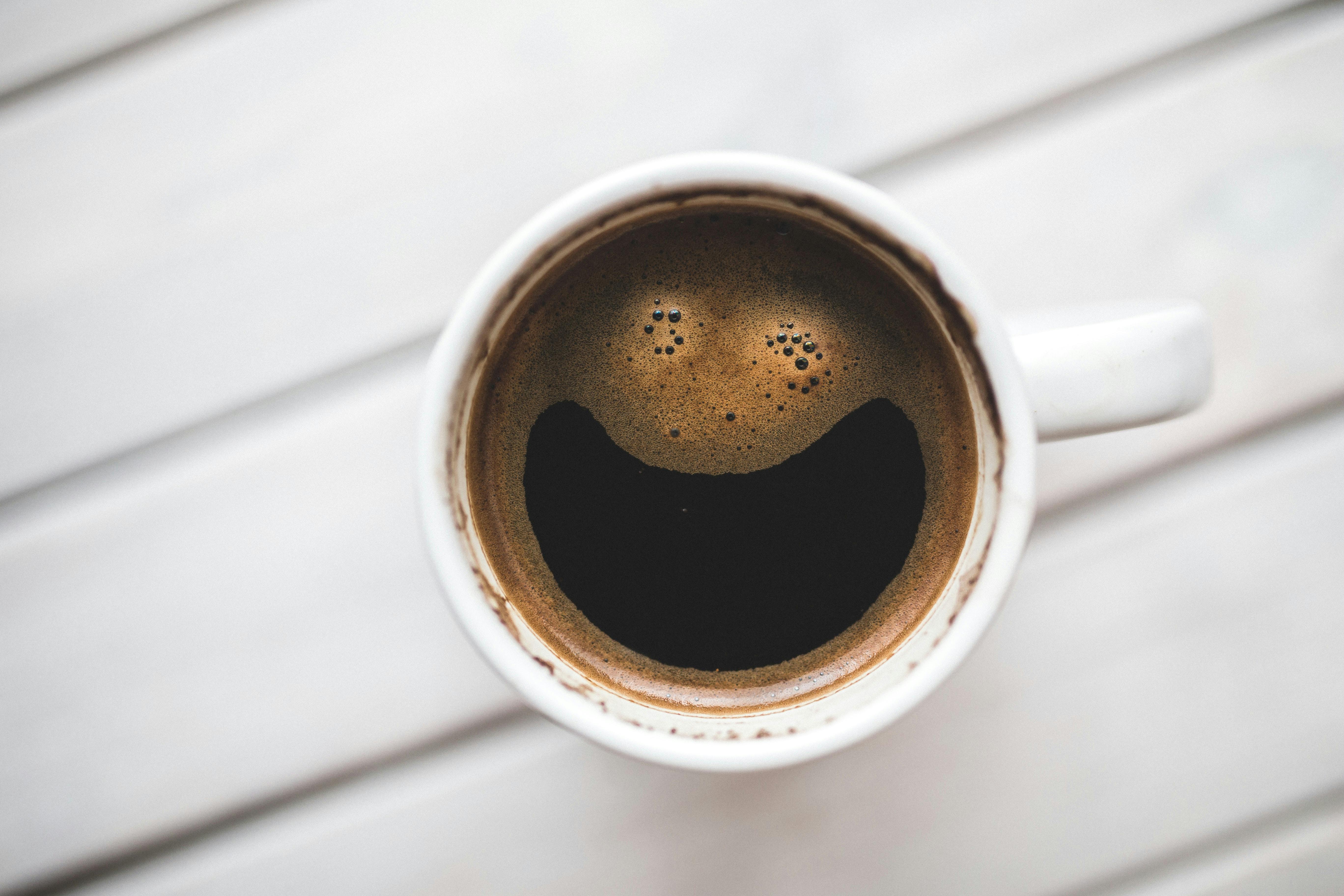
Caffeinated beverages
This one isn’t surprising, but you may be curious about exactly why coffee, energy drinks, and some teas affect your sleep. The caffeine in these beverages acts on receptors in the brain for adenosine, a neurotransmitter that regulates sleep, alertness, and cognitive function. This is why drinking caffeine makes some people feel more alert, focused, and sometimes jittery.
In one study on caffeine and sleep, participants were given 400 mg of caffeine and asked to track their sleep. Having caffeine immediately before bed, 3 hours before bed, and 6 hours before bed were all associated with trouble sleeping. (If you’re curious, a 16-oz drip coffee from a coffee chain has about 310 mg of caffeine, a small energy drink has 80 mg, and a cup of green tea contains 18 mg.)
Tip: Set a cutoff time for caffeinated beverages about 6 hours before your bedtime.
Foods high in fat and sugar
Diets high in fat and sugar and low in fiber have been associated with less restful sleep. This may be due to the way that these nutrients are digested or used by your gut bacteria.
Tip: An overall balanced diet that includes a variety of whole plant foods like fruits, vegetables, whole grains, and beans can promote sleep and leave less room for processed foods that are high in fat and sugar.
Alcohol
You may fall asleep faster after drinking alcoholic beverages, but alcohol causes less restful sleep and less time spent in the REM stage.
Alcohol can also impact the health of your gut bacteria, promote inflammation, and activate areas of your brain that induce stress.
Tip: Take steps to curb your alcohol intake and replace “nightcaps” with a mocktail or calming chamomile tea.
Foods that can help you sleep
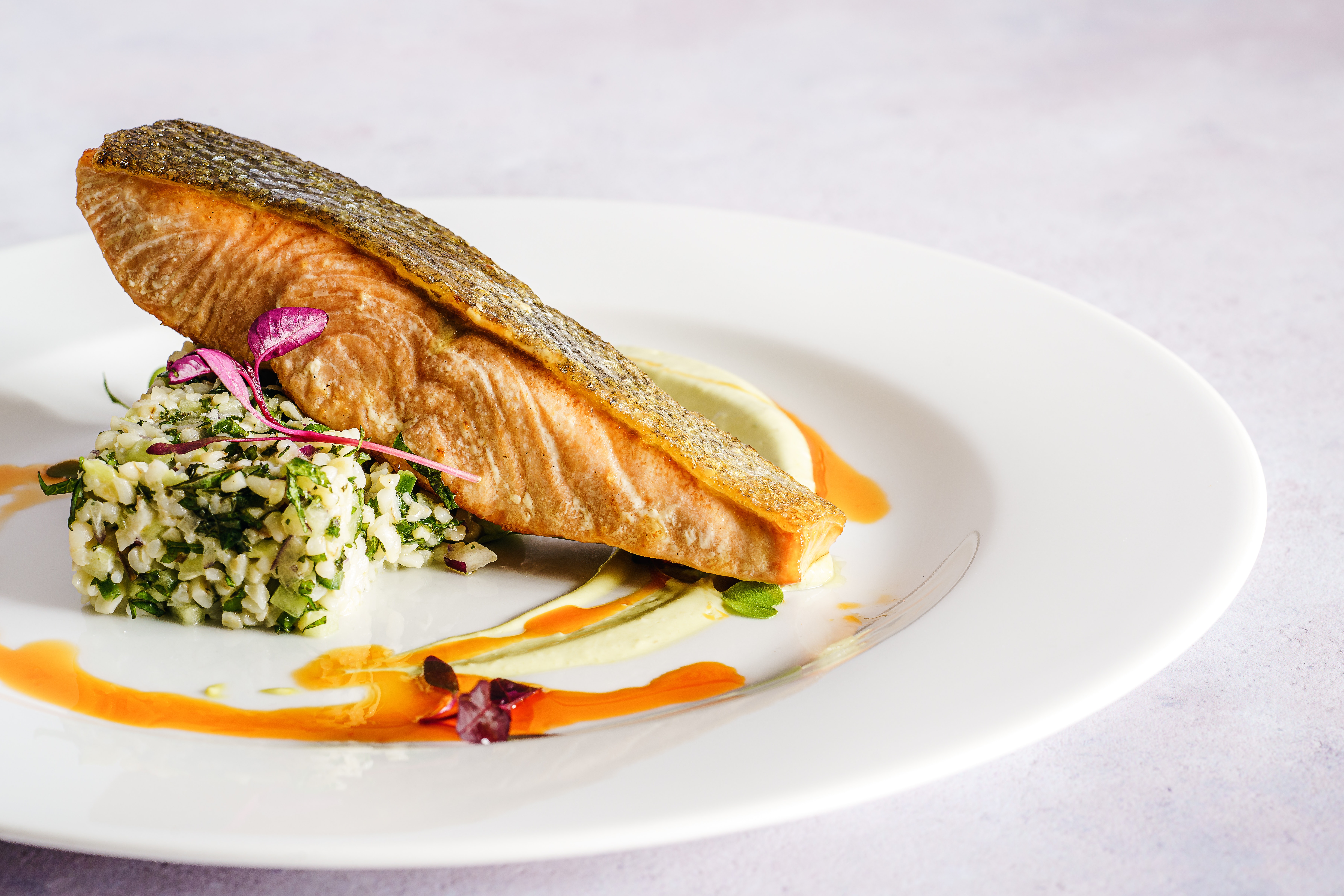
Omega-3’s
Omega-3 fatty acids found in foods like fatty fish and walnuts are precursors to prostaglandins, which are compounds that promote sleep. They also aid in melatonin production, and increase the efficiency of your sleep.
Tip: Eat fish like salmon or mackerel at least twice per week. For the fish-averse, incorporate omega-3-rich foods like walnuts, flaxseeds, and chia seeds on a daily basis.
Melatonin
Melatonin is a hormone produced by the brain that helps regulate the body’s circadian rhythm. You may be familiar with melatonin supplements, but this sleep-promoting hormone can also be found in certain foods. Tart cherries, eggs, milk, nuts, and fish all contain melatonin.
Tip: Ask your medical provider before starting a dietary supplement like melatonin. Otherwise, opt for food sources of melatonin, especially if you need a nighttime snack.
Tryptophan
This amino acid gets plenty of attention at Thanksgiving dinner tables, but the way it works might surprise you. Tryptophan promotes relaxation by increasing the production of melatonin and the feel-good neurotransmitter serotonin. Foods containing tryptophan don’t raise levels on their own. Tryptophan needs carbohydrates to enter the brain because of the way hormones like insulin work to help your body store nutrients.
Tip: Include high-tryptophan foods like turkey, chicken, beef, pork, salmon, cod, tilapia, dairy, edamame, and tofu with a source of carbohydrates like a whole grain, fruit, beans, or potato with dinner.
Chamomile tea
Many decaffeinated teas can have a calming effect, but chamomile is especially effective. Chamomile tea contains a plant compound called apigenin, which binds to the same receptors as anti-anxiety medications like valium and xanax to promote feelings of calm. Multiple studies have also shown improved sleep quality after drinking chamomile tea.
Tip: Add a cup of hot or cold chamomile tea to your nighttime routine.
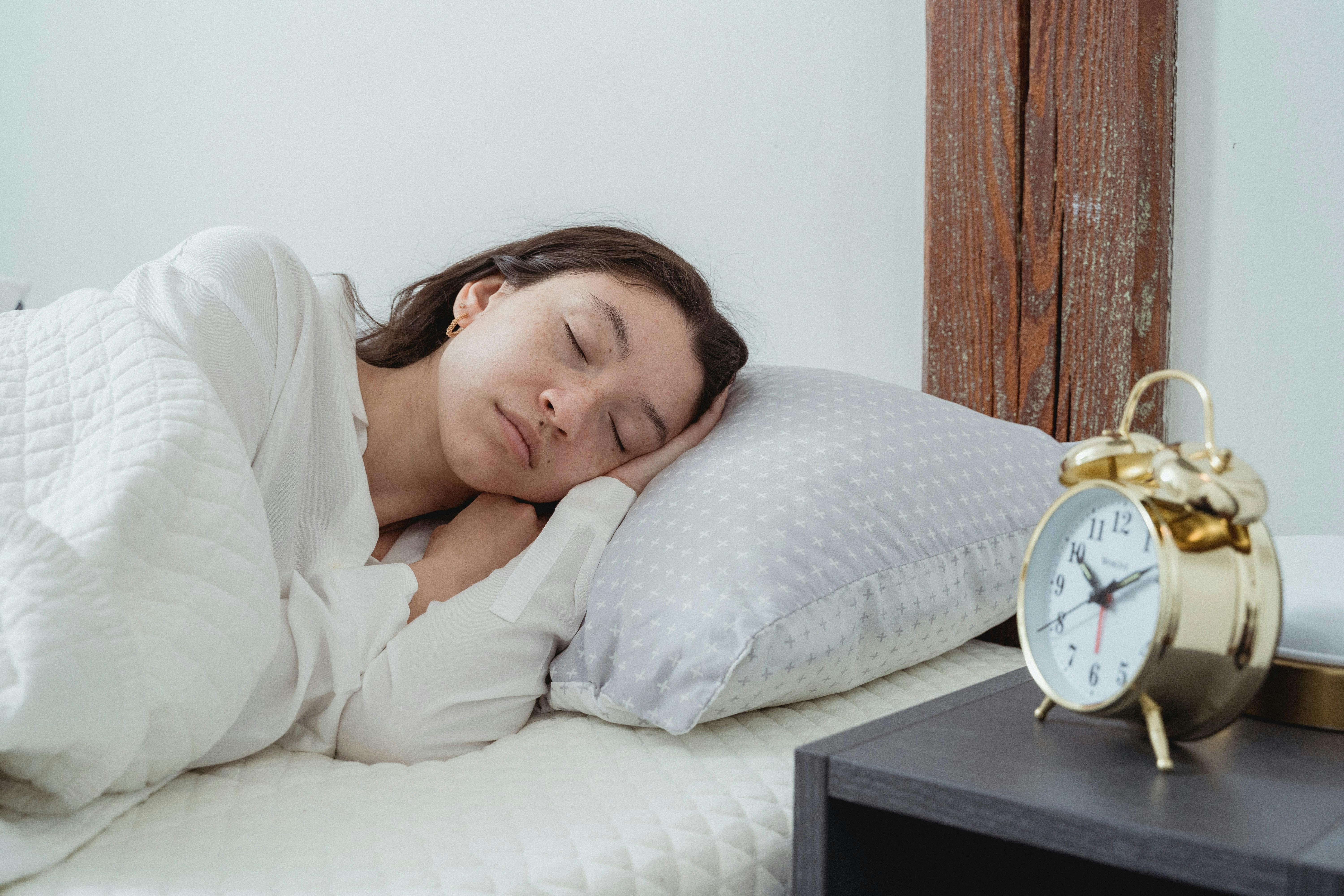
Is it okay to eat before bed?
Although some foods and beverages can disrupt sleep, it is important to listen to your body’s hunger and fullness cues and honor them. If you sense that your hunger is getting intense or could be disruptive to your sleep, it is okay to eat a bedtime snack. Focus on sleep promoting foods to eat before bed.
Tip: Try a cup of yogurt topped with tart cherries and walnuts for a snack full of sleep-promoting nutrients like melatonin, tryptophan, and omega-3’s.
Do you need help with improving your eating habits? Cerebral offers nutrition management services in select states. Try taking our nutrition assessment today.
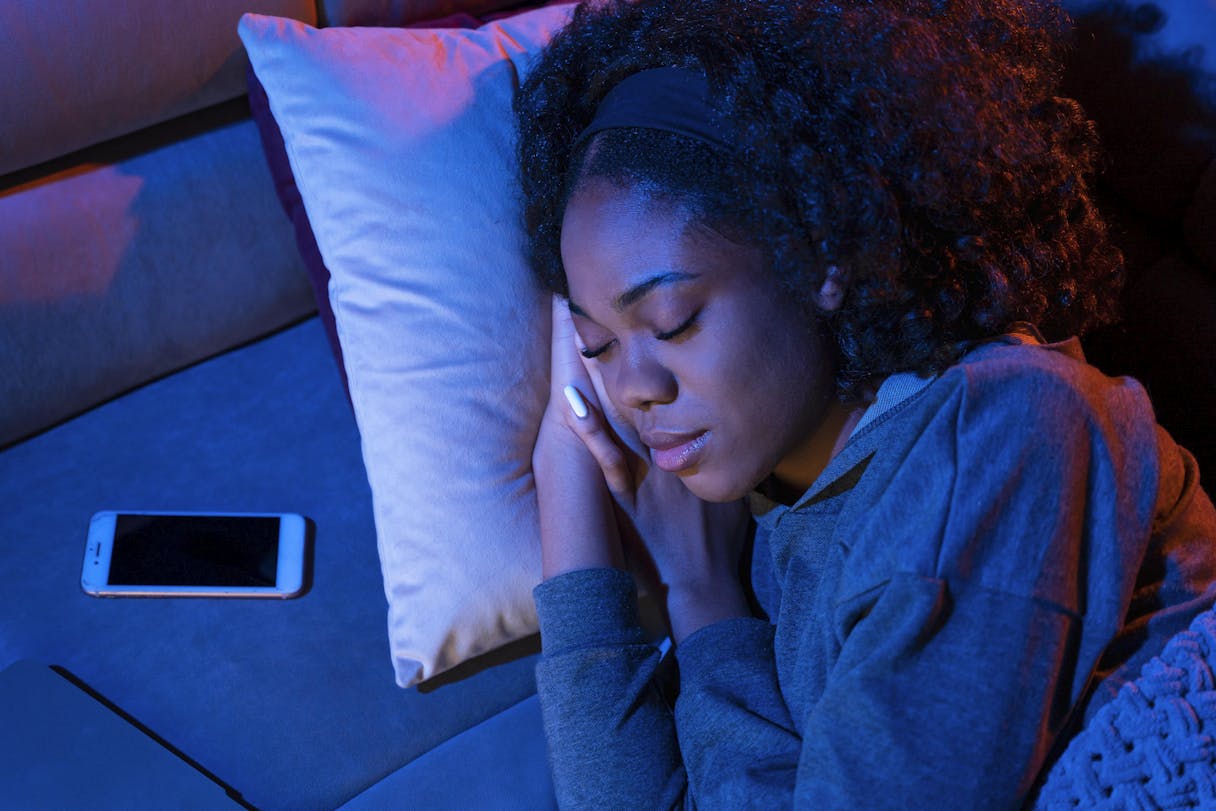
Your Comprehensive Guide to Melatonin: Sleep and Mental Health Benefits
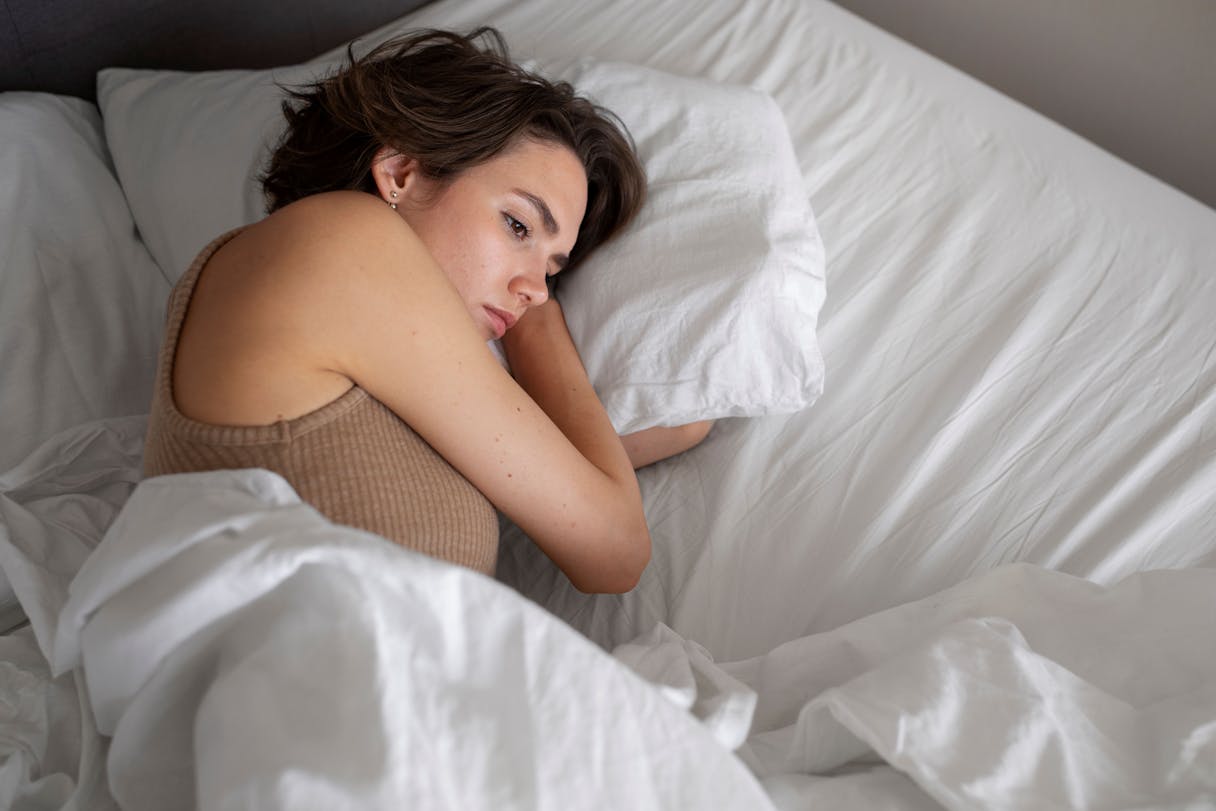
Sleep and Mental Health: What is the Connection?
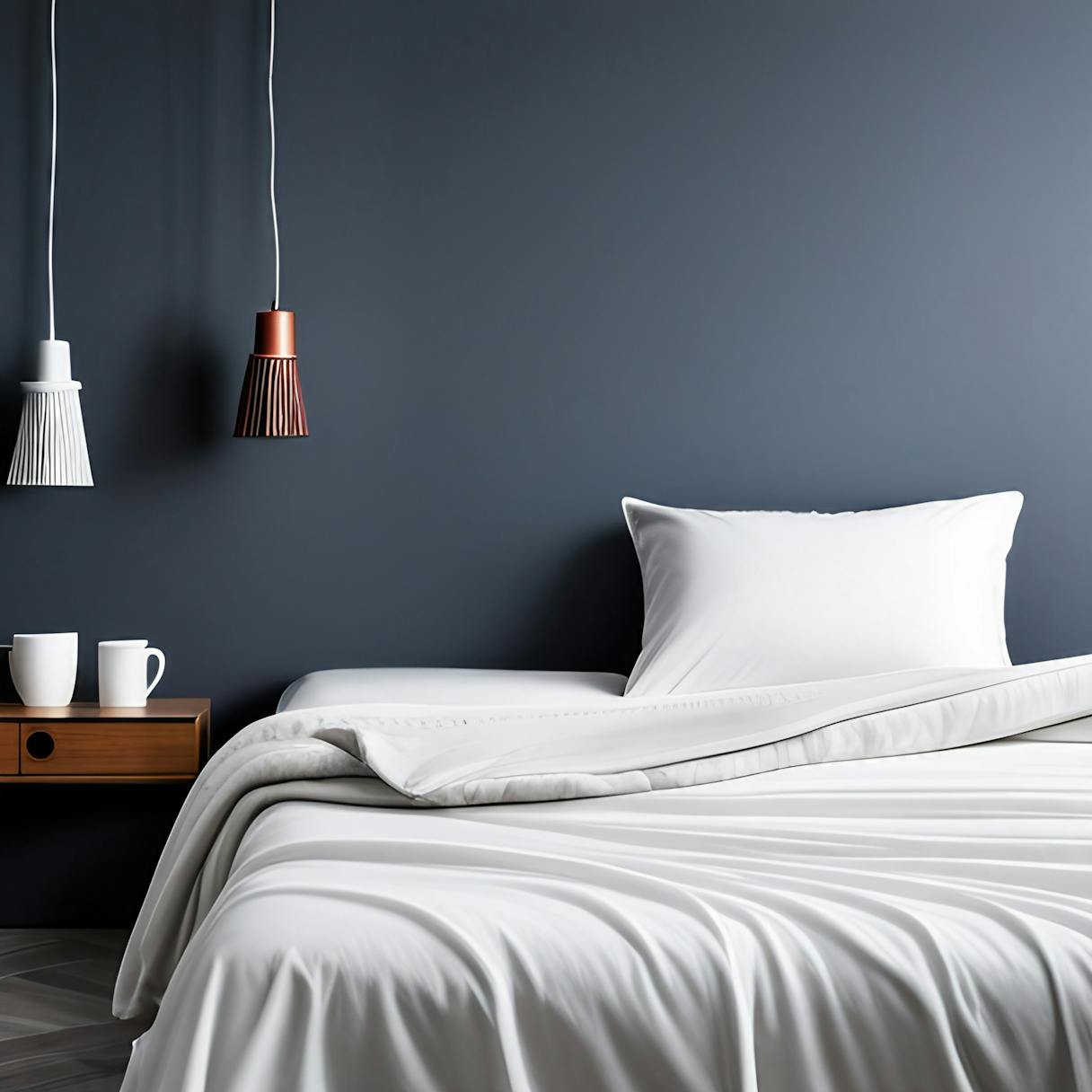
Unveiling the Benefits of Weighted Blankets

Call 911 if you’re having a
mental health emergency
Text Home to 741-741 if you're in emotional
distress and need immediate support
Call or text 988 Suicide &
Crisis Lifeline. Chat service
is available at 988lifeline.org.